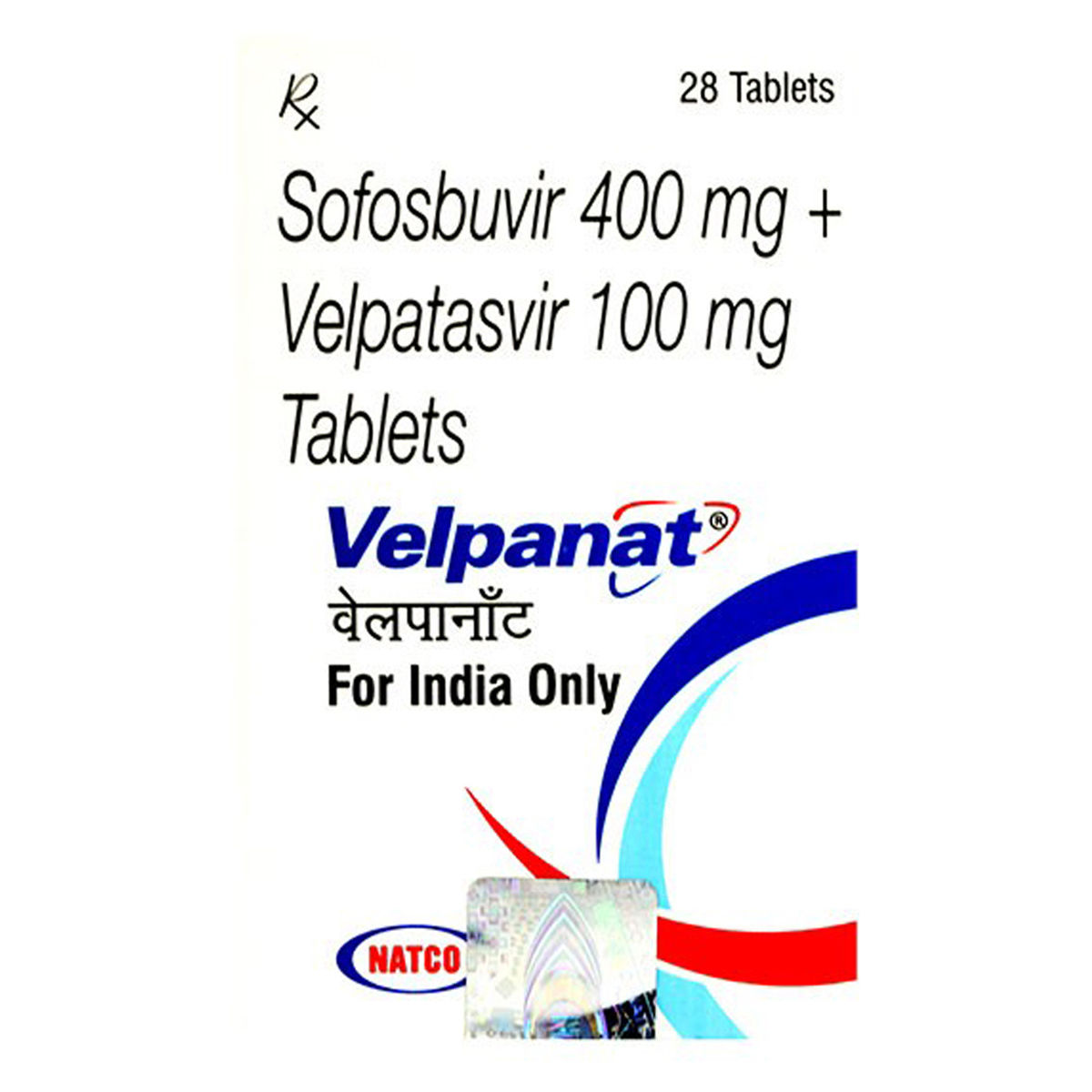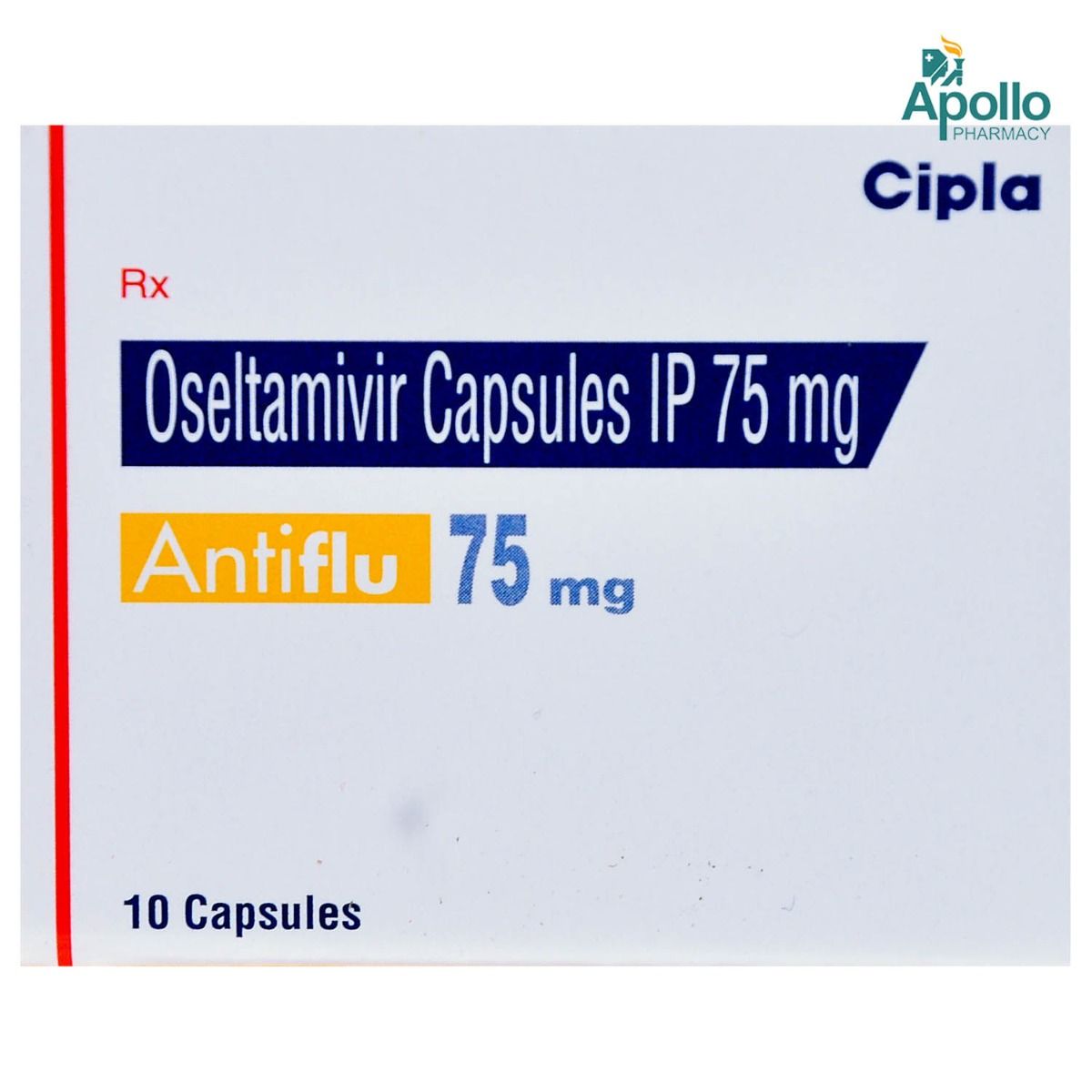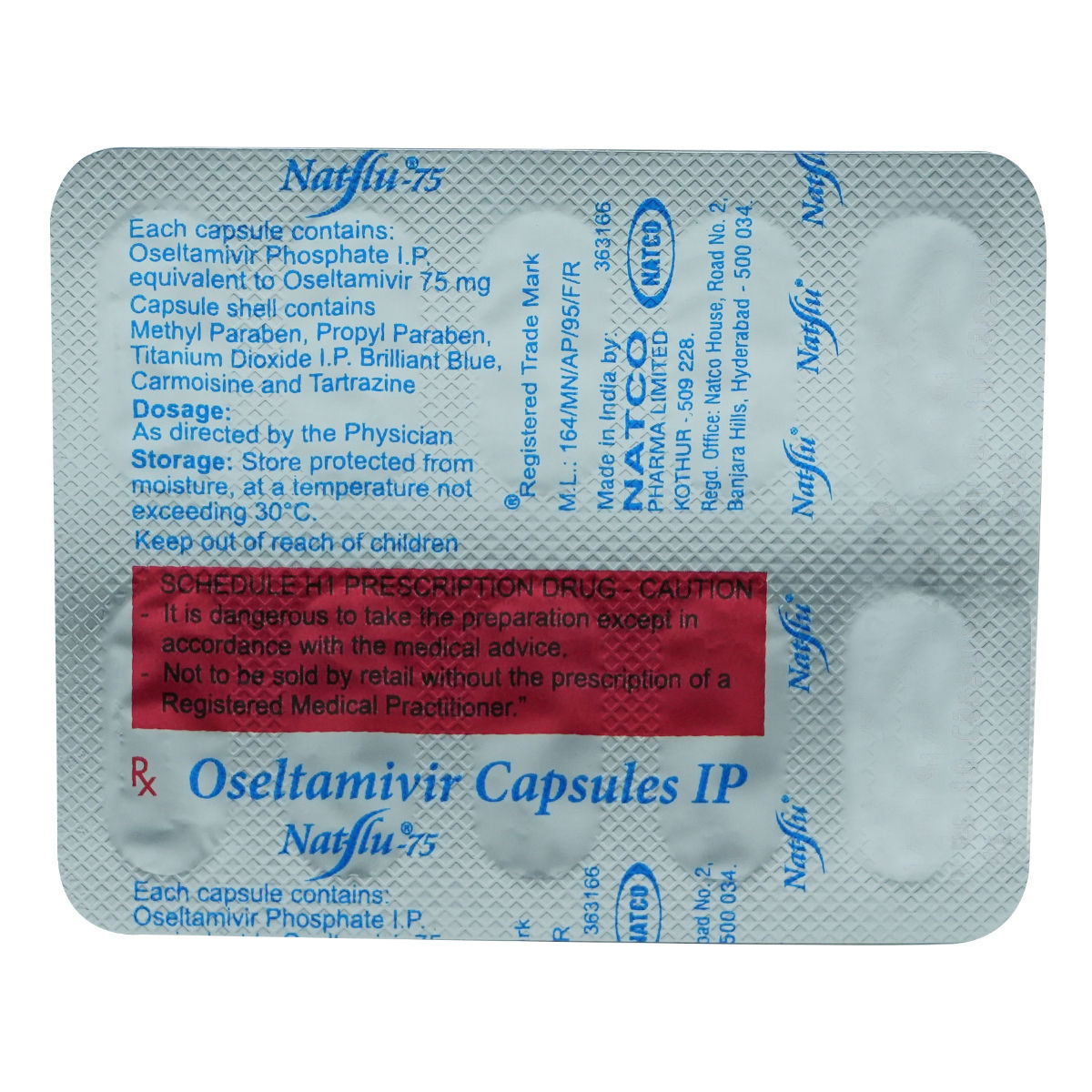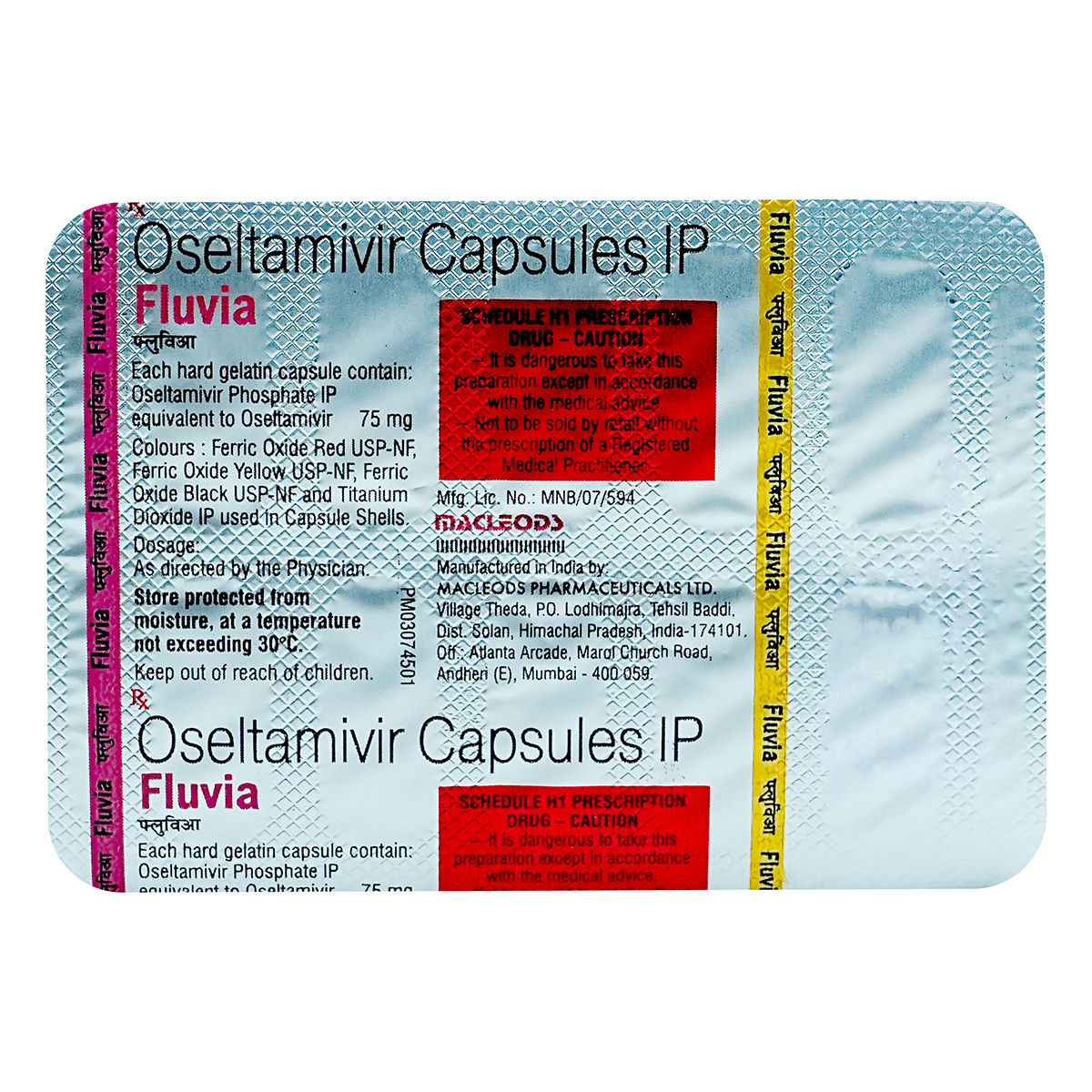- Home
- Health Condition
Medicine For Viral Fever
Medicine For Viral Fever
- Total Items (77)
 RX
RXVelpanat Tablet 28's
₹14350
MRP ₹17500
18% off
 RX
RXSovihep V Tablet 28's
₹14350
MRP ₹17500
18% off
 RX
RXAntiflu 75 mg Capsule 10's
₹791.10
MRP ₹879
10% off
 RX
RXEntavir 0.5 mg Tablet 10's
₹711.50
MRP ₹790.50
10% off
 RX
RXResof Total 400 mg/100 mg Tablet 28's
₹15785
MRP ₹19250
18% off
 RX
RXHepcvel Tablet 28's
₹14350
MRP ₹17500
18% off
 RX
RXT-Alpha 1.6 gm Injection 1's
₹2459.18
MRP ₹2999
18% off
 RX
RXTamiflu 75 mg Capsule 10's
₹629.10
MRP ₹699
10% off
 RX
RXCronivir 0.5 mg Tablet 30's
₹2393.60
MRP ₹2659.50
10% off
 RX
RXXvir 0.5 Tablet 30's
₹1887.30
MRP ₹2097
10% off
 RX
RXEntehep 1 Tablet 30 's
₹3363.20
MRP ₹4101.50
18% off
 RX
RXNatflu 75mg Capsule 10's
₹495
MRP ₹550
10% off
 RX
RXFluvia Capsule 10's
₹542.70
MRP ₹603
10% off
 RX
RXFluvia 12 Suspension 75 ml
₹564.30
MRP ₹627
10% off
 RX
RXHeptos Capsule 10's
₹121.50
MRP ₹135
10% off
 RX
RXRibavin 200 Capsule 4's
₹281.25
MRP ₹312.50
10% off
 RX
RXMyhep DVIR Tablet 28's
₹14309
MRP ₹17450
18% off
 RX
RXVirenza 5 mg Rotacap 30's
₹871.20
MRP ₹968
10% off
 RX
RXResof 400 Tablet 28's
₹16109.72
MRP ₹19646
18% off
 RX
RXMyhep Lvir Tablet 28'S
₹14080
MRP ₹16000
12% off
 RX
RXNatdac 60Mg Tablet (28'S)
₹4920
MRP ₹6000
18% off
 RX
RXMydekla 60Mg 28 Tablets
₹4920
MRP ₹6000
18% off
 RX
RXMyhep 400Mg 28 Tablets
₹10560
MRP ₹12000
12% off
Medicines for Viral Fever
Viral fever is a common illness that can affect anyone, regardless of age or health status. It is caused by various viruses, including influenza, dengue, chikungunya, and others, and is often characterised by a high body temperature, chills, fatigue, headache, and general discomfort. When you have a viral fever, your body is raising its temperature to fight the infection. While this is a natural process, treating the symptoms is important to help you feel more comfortable and recover faster.
Types of Medicines Used for Viral Fever
There are several types of medicines that can help manage viral fever. These medicines work by reducing symptoms like fever, pain, and swelling, making you feel more comfortable while your body fights the virus. The main types of medicine for viral fever used include:
1.Antipyretics (Fever-Reducing Medicines)
Antipyretics are drugs used to lower fever. They help reduce the body temperature when it rises above normal due to a viral infection by acting on the hypothalamus, the part of the brain that regulates body temperature.
Common antipyretics used for viral fever include:
- Paracetamol (Acetaminophen) is one of the most widely used medications for reducing fever. It is considered safe for most people when taken at the recommended dose.
- Ibuprofen is a non-steroidal anti-inflammatory drug (NSAID) that reduces fever and helps alleviate pain and inflammation.
- Aspirin: While effective, aspirin is generally not recommended for children due to the risk of Reye’s syndrome, a rare but serious condition.
2.Analgesics (Pain Relievers)
Viral fever often causes body aches, headaches, and joint pain. Analgesics relieve these symptoms and provide comfort during the illness.
Common analgesics include:
- Paracetamol: Besides reducing fever, it is also effective in providing relief from mild to moderate pain, including headaches and muscle aches.
- Ibuprofen and other NSAIDs: These not only reduce fever but also help alleviate pain associated with viral infections.
3.Antihistamines
Viral infections can sometimes trigger allergic reactions or cause symptoms such as a runny nose or congestion. Antihistamines manage these symptoms by blocking the effects of histamine, a substance released during allergic responses.
Common antihistamines include:
- Diphenhydramine: Often used to treat cold and flu symptoms, including nasal congestion and runny nose.
- Loratadine: This non-drowsy antihistamine is commonly used to alleviate allergic symptoms that might accompany viral infections.
4.Decongestants
Decongestants can reduce swelling in the nasal passages and help improve breathing in viral infections that cause nasal congestion, such as the common cold.
Common decongestants include:
- Pseudoephedrine is a common over-the-counter decongestant that reduces nasal congestion by constricting the blood vessels in the nasal passages.
Phenylephrine is another decongestant that can help relieve a stuffy nose caused by viral infections.
5.Antiviral Medications
Sometimes, especially with viruses like the flu, doctors may prescribe antiviral medicines. These medicines help shorten how long you stay sick and make your symptoms less severe. They work by stopping the virus from making copies of itself in your body.
Common antiviral drugs include:
- Oseltamivir (Tamiflu) is used to treat influenza. If taken early during the infection, it can reduce the severity of symptoms.
- Zanamivir (Relenza): Another antiviral medication used to treat influenza infections.
Benefits of Using Medicines for Viral Fever
The main benefit of taking medicine for viral fever is that it helps reduce the uncomfortable symptoms, like fever, pain, and tiredness. While viral infections usually go away on their own, managing these symptoms makes you feel better while you recover. Some specific benefits of taking medicine for viral fever include:
- Lowering Fever: Medicine for viral fever like paracetamol and ibuprofen can help bring down your fever, making you feel more comfortable and preventing problems that can happen from a high temperature.
- Relieving Pain: Painkillers can help ease body aches, headaches, and joint pain, which are common with viral fever.
- Shortened Recovery Time: In some cases, antiviral medications can shorten the duration of the infection, reducing the time the body takes to recover.
Dosage & Usage Instructions of Medicines for Viral Fever
The dosage and usage of medicine for viral fever vary depending on the type of medicine and the patient's specific condition. Always follow the instructions provided by your healthcare provider or the information on the medication label. Here are some general guidelines:
1.Paracetamol (Acetaminophen)
- Adults: 500 mg to 1,000 mg every 6 hours, as needed (maximum 4,000 mg per day).
- Children: The dosage is based on weight. For children aged 2 to 12 years, it’s typically 10–15 mg per kg of body weight every 4 to 6 hours.
- Important: Do not exceed the recommended dose to avoid liver damage.
2.Ibuprofen
- Adults: 200 to 400 mg every 4 to 6 hours as needed (maximum 1,200 mg daily).
- Children: The dosage depends on the child’s weight and age. Typically, 5–10 mg per kg of body weight every 6 to 8 hours.
- Important: Take with food to minimise stomach irritation.
3.Antiviral Medications
Drugs like oseltamivir should be taken as soon as symptoms appear, ideally within 48 hours of symptom onset. The dosage typically includes one capsule (75 mg) twice a day for five days.
- Important: Antiviral medications are more effective when taken early in the course of the infection.
4.Decongestants and Antihistamines
Follow the recommended dosage on the label. Decongestants such as pseudoephedrine are often taken every 4 to 6 hours, but it’s essential not to exceed the recommended daily dose.
Buy Medicines for Viral Fever Online at Apollo 24|7
If you are looking for convenient access to medicines for viral fever, Apollo 24|7 offers a wide range of over-the-counter medications, including paracetamol, ibuprofen, antihistamines, and antivirals. You can order your medicines online and have them delivered right to your door. The website gives you all the details about each product, including how much to take and how to use it, so you can make the best choices for your health.
Frequently asked questions
No, antibiotics are not effective against viral infections. They treat bacterial infections, not viral infections like the flu or cold.
Viral fever generally lasts 3 to 7 days, depending on the virus causing the infection. However, in some cases, it may take longer for the body to recover completely.
Yes, you can take pain relievers like paracetamol or ibuprofen in recommended doses with medicines that reduce fever.
You should see a doctor if you have serious symptoms like trouble breathing, a high fever that won’t go away, a rash, or if the fever lasts more than a week. Also, if you feel very dehydrated or confused, get medical help right away.
You can’t always prevent viral infections, but practising good hygiene, like washing your hands regularly and avoiding close contact with sick people, can help reduce the risk.

